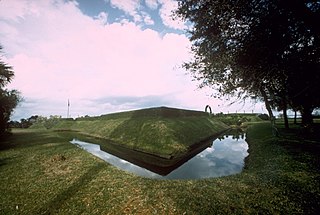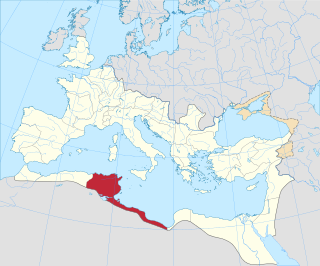 W
WA lost city is a settlement that fell into terminal decline and became extensively or completely uninhabited, with the consequence that the site's former significance was no longer known to the wider world. The locations of many lost cities have been forgotten, but some have been rediscovered and studied extensively by scientists. Recently abandoned cities or cities whose location was never in question might be referred to as ruins or ghost towns. The search for such lost cities by European explorers and adventurers in Africa, the Americas, and Southeast Asia from the 15th century onwards eventually led to the development of archaeology.
 W
WFort Caroline was an attempted French colonial settlement in Florida, located on the banks of the St. Johns River in present-day Duval County. It was established under the leadership of René Goulaine de Laudonnière on June 22, 1564, as a new territorial claim in French Florida and a safe haven for Huguenots, who were being persecuted in France because they were Protestant, rather than Catholic. The French colony came into conflict with the Spanish, who established St. Augustine in September 1565, and Fort Caroline was sacked by Spanish troops under Pedro Menéndez de Avilés on September 20. The Spanish continued to occupy the site as San Mateo until 1569.
 W
WKota Gelanggi is an archaeological site reported in 2005 as potentially the first capital of the ancient Empire of Srivijaya and dating to around 650–900 and one of the oldest Kingdoms on South East Asia's Malay Peninsula. The site's existence was announced as a 'discovery' by the Malaysian press on 3 February 2005.
 W
WThe establishment of the Roanoke Colony was an attempt by Sir Walter Raleigh to found the first permanent English settlement in North America. The English, led by Humphrey Gilbert, had claimed St. John's, Newfoundland in 1583 as the first North American English territory at the royal prerogative of Queen Elizabeth I. The first Roanoke colony was founded by governor Ralph Lane in 1585 on Roanoke Island in what is now Dare County, North Carolina, United States. Following the failure of the 1585 settlement, a second colony—led by John White—landed on the same island in 1587, and set up another settlement that became known as the Lost Colony due to the subsequent unexplained disappearance of its population.
 W
WTakedda was a town and former kingdom located in present-day Niger. The archaeological site at Azelik wan Birni is believed to be the ruins of ancient Takedda.
 W
WTeljä was late Iron Age and early Middle Ages settlement in Finland at the historical province of Satakunta. According to tradition it was located by the river Kokemäenjoki in the present municipality of Kokemäki. It is uncertain whether Teljä was a town-like settlement or more of a market place for Baltic Sea traders.
 W
WTiguala was an ancient Roman-Berber city in the province of Byzacena. The exact location of the town remains unknown for certain, but it was in Sahel in northern Tunisia.
 W
WTurrisblanda, was a Roman and Byzantine era colonia (town) in the Roman Empire province of Byzacena in what is today modern Tunisia. Its exact location remains unknown. It was also a capital of an historic diocese of the Roman Empire. The bishopric remains today as a titular see of the Roman Catholic Church. The current bishop is Jan Szkodoń, Auxiliary Bishop of Cracow.
 W
WVassinassa was an ancient Roman–Berber city in the province of Byzacena. The exact location of the town is not known for certain, but it was in northern Tunisia.
 W
WVicina was a town on the Danube used as a tradepost (Emporia) by the Republic of Genoa, being part of the Genoese trade empire between the 13th and 14th century. At one time, it was the most flourishing port of the maritime Danube, but its importance declined with the development of other ports such as Kilia and Brăila. Although many locations have been proposed by both historians and archeologists as the remains of Vicina, it is still unknown where this town was located.
 W
WVilcabamba, Willkapampa is often called the Lost City of the Incas. Vilcabamba means "sacred plain" in Quechua. The modern name for the Inca ruins of Vilcabamba is Espiritu Pampa. Vilcabamba is located in Echarate District of La Convención Province in the Cuzco Region of Peru.
 W
WThe Diocese of Zella is a suppressed and titular see of the Roman Catholic Church.